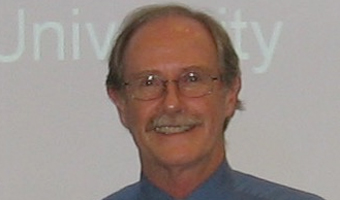The Wealth & Poverty Focus on Africa series presents Philip McMichael on “Food Sovereignty and the Global Hunger Games” on Sept. 17, from 1:30-2:50 p.m.
Abstract: In a world increasingly challenged by ecosystem decline and climate emergency, questions of food security and land management are entering public discourse. The relationship between food price shocks and land grabbing draws attention to the growing concern with food access, framed by predictions of swelling population, depleted land and political instability. Cities and states are increasingly sensitive to food provisioning systems, at the same time as financialization of land and agriculture threatens to “empty the countryside” of farmers with replications of the “world farm” across the world. The classical agrarian question rested on the premise that land would be progressively capitalized, with the consequence that peasants and farmers would disappear. This premise continues to inform current (sometimes more nuanced) scenarios of “agriculture for development” (World Bank 2008), and prescriptions for “feeding the world.” This talk critically engages with these scenarios, examining the elemental contention between conventional understandings of “food security,” via the trade regime and a mushrooming “food sovereignty” movement that politicizes food provisioning via a discourse of rights and ecological regeneration.
McMichael’s research addresses world political-economic history, focusing on food and agricultural systems, and developing alternative comparative-historical methods. Trained as a historical sociologist, he examines capitalist modernity through the lens of agrarian questions, food regimes, agrarian movements, and, most recently, the global land grab for food and biofuels. This work centers the role of agri-food systems in the making of the modern world, including an examination of the politics of globalization via the structuring of agri-food relations. Along the way, he has worked with the FAO and UNRISD, the International Planning Committee for Food Sovereignty, and the international peasant coalition, La Vía Campesina. Current research concerns examining the “global land grab” as a harbinger of the new bioeconomy, and as a process of relocating agriculture to land in the global South as the basis of a new food regime. His hypothesis is that such developments express a large-scale transition in the global food economy driven by the combination of crises (energy, food, climate and financial), resulting in a reconfiguration of the content (biomass emphasis) and location of world agriculture. At the same time this development is contested, and he also is examining the rise of alternative, multi-functional conceptions of agriculture, championed by local food movements and food sovereignty coalitions across the world.




















Comments